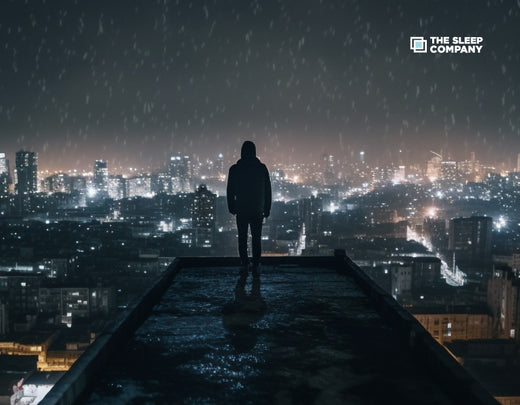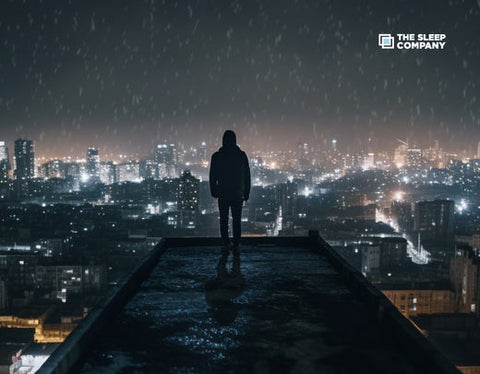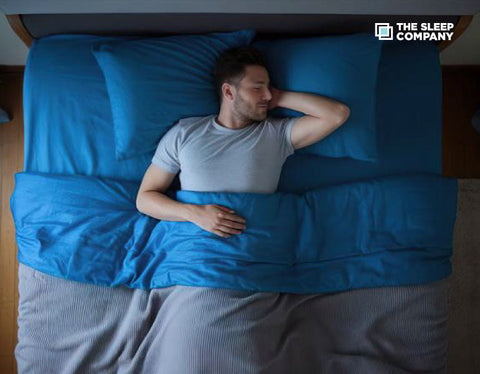My Cart

Ombrophobia: The Fear of Rain

Imagine, while most people enjoy the first rain showers of the season, some individuals may experience chills at the mere thought of rain. This intense fear of rain is known as Ombrophobia. While some people may simply dislike getting caught in the rain, ombrophobia goes beyond discomfort to extreme levels of anxiety and fear. This phobia can have significant effects on a person's physical and mental health, as well as their ability to perform everyday activities. Particularly for those living in regions with regular rainfall, ombrophobia can make life very challenging. In this blog, we will explore more about ombrophobia, its symptoms, causes and potential treatment options. Let's explore this condition together.
Causes of Ombrophobia
Ombrophobia is a very specific phobia and the causes of ombrophobia are not always clear-cut. Causes for specific phobias can be different from person to person based on several factors. Some of the factors that can initiate ombrophobia are:

1. Negative experiences:
Traumatic events related to rain, such as being caught in a severe storm or witnessing property damage from flooding, can deeply imprint ombrophobia in individuals. These experiences often leave lasting emotional scars, associating rain with danger and threat. For someone with ombrophobia, the fear isn't just about the rain itself but also the memories and emotions linked to those past traumatic events.
2. Learned behavior:
Individuals can develop ombrophobia through a process known as observational learning, particularly when they witness fearful reactions to rain from others, especially during childhood. Young children are highly impressionable, and observing adults or peers displaying fear or anxiety during rainy weather can significantly impact their emotional responses. Suppose a child sees caregivers or family members panicking, seeking shelter, or expressing distress during rainstorms. In that case, they may internalize these reactions as cues that rain is inherently dangerous or something to be feared.
3. Genetics:
Research suggests that individuals with a family history of anxiety disorders or specific phobias may be more prone to developing similar fears themselves. This genetic component involves inherited traits that can influence brain chemistry, neural pathways and the regulation of emotions.
4. Effect of Aquaphobia:
Those who have aquaphobia, which means fear of water can also develop the fear of rain. The connecting element between aquaphobia and ombrophobia is water which affects the bearer of both phobias.
Symptoms of Ombrophobia
The ombrophobia symptoms can vary in intensity and may include:

1. Psychological Symptoms:
Individuals with ombrophobia fear experience intense anxiety or panic when exposed to rain or even the thought of rain. They may have persistent thoughts about the potential for rain and engage in excessive worrying about weather forecasts.
2. Physical Symptoms:
Physical reactions to ombrophobia can include rapid heartbeat, sweating, trembling or shaking, shortness of breath, nausea or stomach discomfort, dizziness, and a feeling of fear or approaching disaster.
3. Behavioral Symptoms:
Avoidance behaviors are common among individuals with ombrophobia. They may alter their daily routines to avoid going outside during rainy weather, cancel plans or appointments if rain is forecasted, or take extreme measures to shield themselves from exposure to rain.
4. Daily Difficulty:
Individuals with ombrophobia often struggle with difficulty functioning normally in everyday situations. This includes disruptions in daily routines, social interactions, and overall productivity due to their intense fear and anxiety surrounding rain. Tasks such as commuting, going to work or study or attending outdoor activities become daunting challenges for them.
5. Constant Worry:
The persistent thought of rain may dominate their mental space, leaving them with anxiety and fear. They may constantly check weather forecasts, plan their activities carefully to avoid rainy situations, or feel uneasy when rain is mentioned or observed. The consistent nature of these worries can be exhausting, affecting their ability to concentrate on other tasks or enjoy everyday activities.
Diagnosis of Ombrophobia
Typically, a thorough assessment by a mental health specialist, such as a psychologist or psychiatrist, is required to diagnose ombrophobia. The procedure could consist of:

-
Medical interrogation
To fully understand the patient's sleep history, concerns, and any associated symptoms, the therapist will perform an extensive interview. They could ask about family history, triggers, and how the fear affects day-to-day activities.
-
Identifying factors
Specific criteria for diagnosing particular phobias, such as somniphobia, are outlined in the Diagnostic and Statistical Manual of Mental Disorders (DSM-5). For an official diagnosis, the patient needs to fulfill these requirements.
-
Ways to evaluate
To measure the extent of a phobia and monitor changes over time, psychologists may employ exams or use questionnaires to come up with particular treatment.
How to overcome Ombrophobia
There are few ombophobia treatments available. Effective treatments for ombrophobia typically involve psychotherapy and, in some cases, medications:

1. Cognitive Behavioral Therapy (CBT):
CBT is a common and effective treatment for specific phobias. It helps individuals identify and challenge irrational thoughts and beliefs about rain, gradually exposing them to rain-related stimuli in a controlled manner.
2. Exposure Therapy:
This involves gradually exposing individuals to rain or rain-related stimuli in a therapeutic setting to reduce fear responses over time.
3. Medications:
In some cases, doctors may prescribe anti-anxiety medications or beta-blockers to help manage symptoms of anxiety associated with ombrophobia. However, medications are usually considered adjunctive to therapy rather than a standalone treatment.
4. Relaxation Techniques:
Learning and practising relaxation techniques such as deep breathing, meditation, or mindfulness can help manage anxiety symptoms associated with ombrophobia.
5. Bed Time Practice:
Make your surroundings comfortable with soothing curtains. Listen to calming music and use a comfortable mattress before going to bed.
Facts about Ombrophobia
Ombrophobia facts include:
- People with ombrophobia feel extreme stress when the rain comes. It’s not like a generic dislike but a serious fear.
- This fear can be activated just by the discussion of rain. This is often connected to the horrible memories related to rain such as storms, floods, or something else.
- Sometimes, people who have a fear of water may also develop ombrophobia as both things have one common element i.e., water.
Is Ombrophobia a Serious Phobia?
While ombrophobia may not be as widely recognized as some other phobias, it can still have a significant impact on an individual's life. The severity of ombrophobia varies from person to person, but for those affected, it can lead to avoidance behaviors that interfere with daily activities, work, and relationships. Over time, untreated phobias can worsen and contribute to the development of other mental health issues, such as depression or generalized anxiety disorder.
Seeking help from a qualified mental health professional is crucial for anyone experiencing ombrophobia. With the right treatment approach, many individuals can learn to manage their fear of rain effectively and improve their quality of life.
Key Takeaways:
Ombrophobia reveals the complex interaction of psychological and emotional reactions that are strongly rooted in individual experiences and perceptions. The rainy season is more than simply a normal occurrence for people who have ombrophobia; it causes severe anxiety and avoidance behaviors that might interfere with daily life. Knowing the causes and effects of ombrophobia helps to clarify the many ways people deal with their anxieties and look for assistance. We may encourage empathy and a supportive atmosphere for individuals impacted by ombrophobia by recognizing its difficulties and raising awareness. This will also motivate them to take steps towards empowerment and develop useful coping mechanisms for dealing with this particular phobia.
FAQs
Ombrophobia is a deep fear of rain.
Symptoms may include anxiety or panic attacks triggered by rain, avoidance of rainy weather or places where rain occurs, and physical symptoms like rapid heartbeat or sweating.
Ombrophobia is diagnosed through clinical evaluation by a healthcare professional, considering symptoms and their impact on daily life.
Yes, you can manage ombrophobia with self-help techniques like gradual exposure to rain, relaxation exercises, and cognitive-behavioural strategies. Severe cases may require professional help.
Exact prevalence rates are unclear, but like other specific phobias, ombrophobia affects a portion of the population, potentially exacerbated by personal experiences and environmental factors.
Yes, while some cases may originate in childhood, ombrophobia can develop at any age due to triggering events or sensitivities related to rain.
Untreated ombrophobia can lead to significant impairment in daily functioning, social isolation, and increased anxiety over time.
Yes, with appropriate treatment and support, many individuals can learn to manage and reduce their fear of rain, improving their quality of life.
Yes, there are online and in-person support groups, therapy services, and educational resources focused on specific phobias like ombrophobia, providing tools and community for individuals seeking help and understanding.





























































